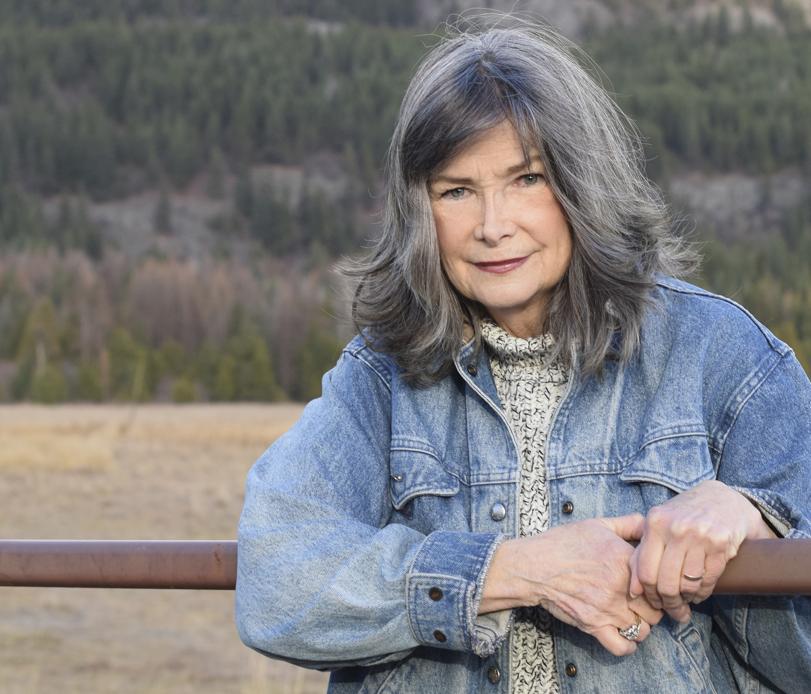Do you need to know a little more about the early contacts between the Native Americans and the European settlers in North Carolina?
Help is on the way with four books and four upcoming programs on “North Carolina Bookwatch.”
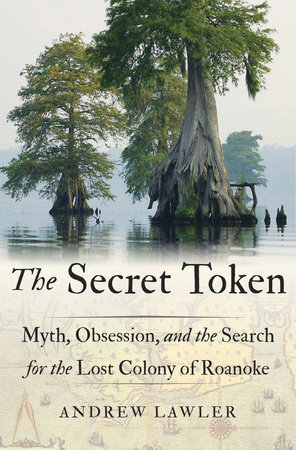 The first book is “The Secret Token: Myth, Obsession, and the Search for the Lost Colony of Roanoke.” Asheville writer Andrew Lawler explains the magnitude of Sir Walter Raleigh’s efforts to establish an English colony on the North Carolina coast and the troubling encounters with the natives, beginning in seeming friendship, but ending in tension and violence.
The first book is “The Secret Token: Myth, Obsession, and the Search for the Lost Colony of Roanoke.” Asheville writer Andrew Lawler explains the magnitude of Sir Walter Raleigh’s efforts to establish an English colony on the North Carolina coast and the troubling encounters with the natives, beginning in seeming friendship, but ending in tension and violence.
After two earlier explorations, a group of families that became the legendary Lost Colony landed on Roanoke Island in 1587. Short on supplies, their governor, John White, sailed to England for provisions. When he finally returned in 1590, the colony had disappeared, leaving only a carving of “Croatoan” on a post.
Lawler recounts the 400-plus year search for clues about the settlers’ fate, a story almost as interesting as the Lost Colony saga. He discusses the possibility that the Lumbee Indians could be descended from the Lost Colonists. (Lawler appears on UNC-TV’s “North Carolina Bookwatch,” Sunday, June 23, at 11 A.M. and Tuesday, June 25 at 5 P.M.)
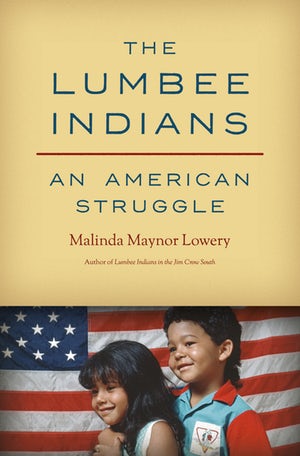 Malinda Maynor Lowery’s new book, “The Lumbee Indians: An American Struggle,” answers questions about these North Carolina people and reminds us that the Lumbees are the largest Native American tribe east of the Mississippi.
Malinda Maynor Lowery’s new book, “The Lumbee Indians: An American Struggle,” answers questions about these North Carolina people and reminds us that the Lumbees are the largest Native American tribe east of the Mississippi.
Lowery, a member of the Lumbee tribe and a UNC-Chapel Hill associate professor, combines her scholarly talents with her lifelong family experience to tell the Lumbee story with authority and warmth.
More about this book in a future column. (Bookwatch: June 30 and July 1)
A little more than 100 years after the Lost Colony disappeared, Europeans again intruded on Native American lands in our state.
In 1700, John Lawson walked through the interior of the Carolinas, visiting Indian villages and making notes for a book, “A New Voyage to Carolina,” first published in 1709. It remains a classic for its rich descriptions of flora and fauna and the conditions of native people.
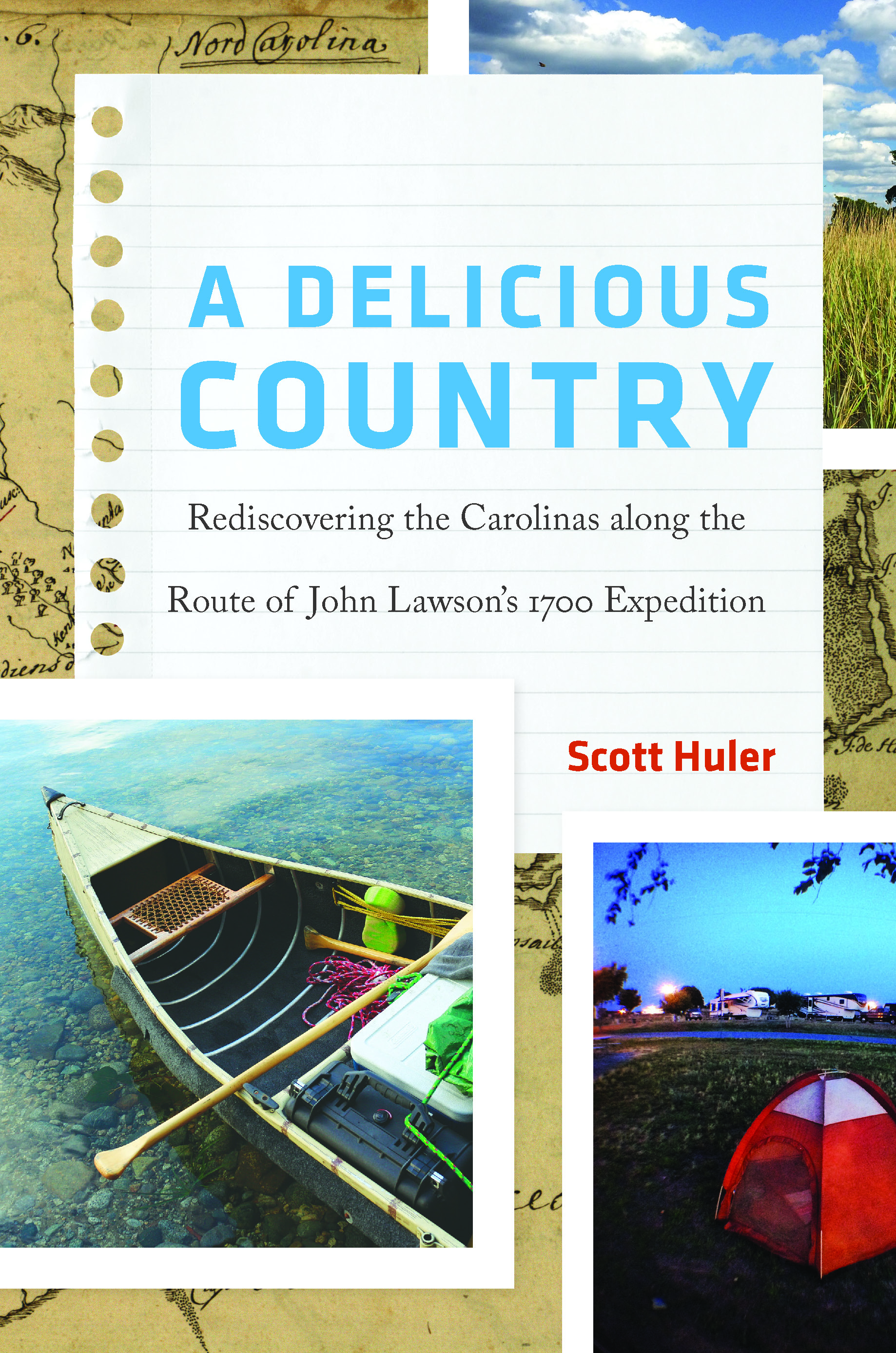 More recently, Durham writer Scott Huler, made a long walk in Lawson’s footsteps. He shares his travels in a new book, “A Delicious Country: Rediscovering the Carolinas along the Route of John Lawson’s 1700 Expedition.”
More recently, Durham writer Scott Huler, made a long walk in Lawson’s footsteps. He shares his travels in a new book, “A Delicious Country: Rediscovering the Carolinas along the Route of John Lawson’s 1700 Expedition.”
Huler writes about Lawson, “He stayed in their wigwams, ate their food, trusted their guides. And he emerged with their stories, for some of which he is the only source in the world.”
Lawson found the native populations to be in a precarious situation, disappearing from the scene as a result of “The Small-Pox and Rum.” Huler found present day rural and small town landscapes in a similar crisis, littered with empty manufacturing plants, deserted main streets, and abandoned houses.
Lawson’s explorations and the reports about them attracted more European settlers and gave him a prominent place in the young colony. That success came to a sudden end when the Tuscarora Indians he had so greatly admired and praised, captured and executed him in 1711. (July 7, 9)
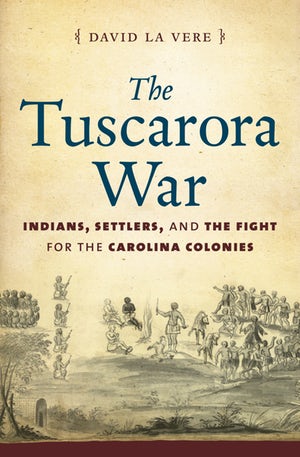 Lawson’s execution coincided with the Tuscarora attack on the European settlers in the New Bern area. UNC-Wilmington professor David La Vere describes that conflict in “The Tuscarora War: Indians, Settlers, and the Fight for the Carolina Colonies.”
Lawson’s execution coincided with the Tuscarora attack on the European settlers in the New Bern area. UNC-Wilmington professor David La Vere describes that conflict in “The Tuscarora War: Indians, Settlers, and the Fight for the Carolina Colonies.”
North Carolina’s efforts to beat back the Tuscarora were unsuccessful. The colony had not enough manpower, firepower, or money. Help finally came from the wealthy sister colony to the south. South Carolina sent two expeditions that effectively destroyed all Tuscarora resistance, and opened up settlement in the interior of North Carolina. (July 14, 16)
If the broadcast times don’t suit you, remember to set your video recorder or watch at any time at http://video.unctv.org/show/nc-bookwatch/episodes/
 D.G. Martin hosts “North Carolina Bookwatch,” Sunday 11:00 am and Tuesday at 5:00 pm on UNC-TV. The program also airs on the North Carolina Channel Tuesday at 8:00 pm and other times.
D.G. Martin hosts “North Carolina Bookwatch,” Sunday 11:00 am and Tuesday at 5:00 pm on UNC-TV. The program also airs on the North Carolina Channel Tuesday at 8:00 pm and other times.
To view prior programs: http://video.unctv.org/show/nc-bookwatch/episodes/







